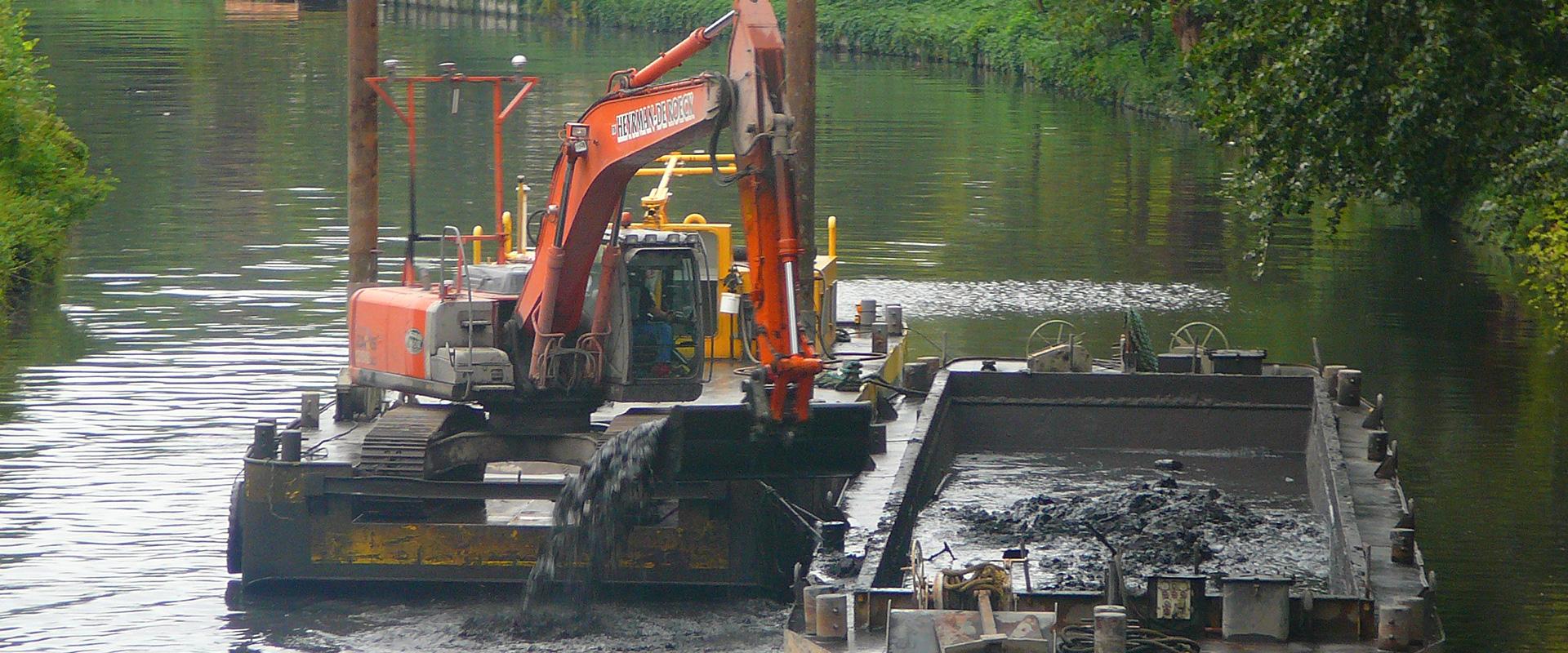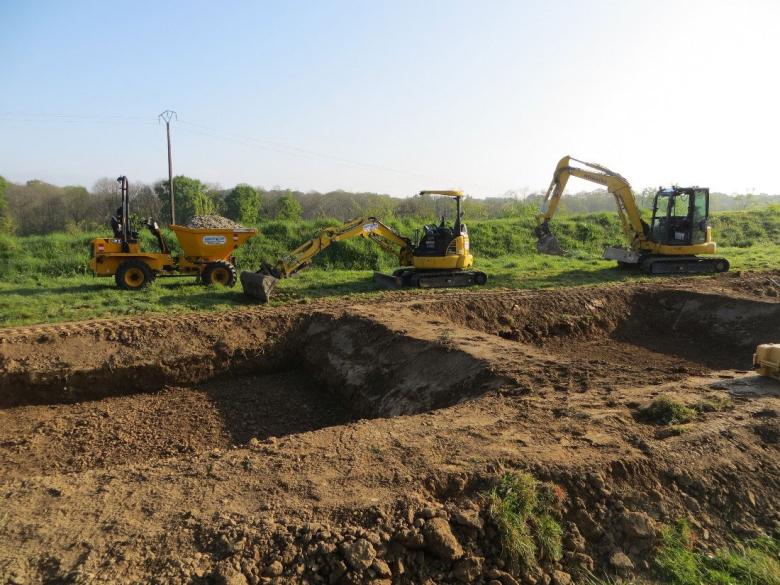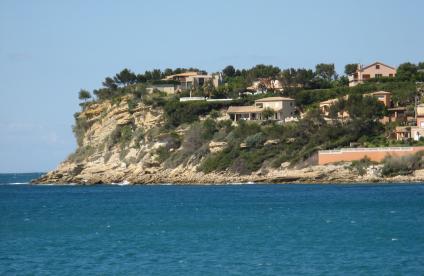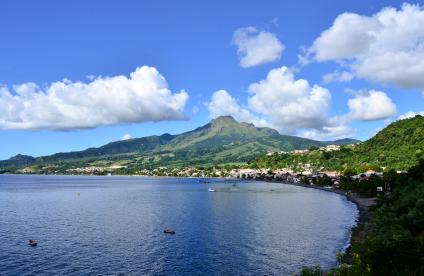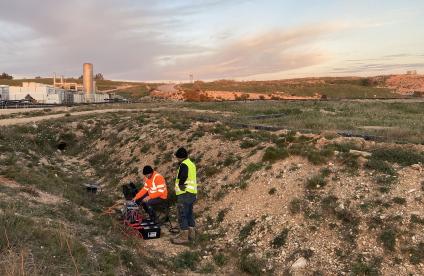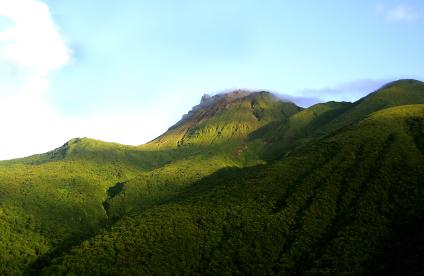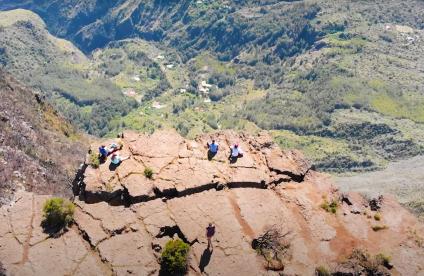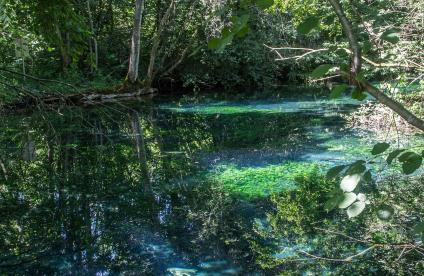The SURICATES project (Sediment Uses as Resources In Circular And Territorial EconomieS) implements new large-scale solutions for reusing sediments in the ports, waterways and coastlines of North-West Europe (Interreg NWE programme). These solutions are available to the authorities, port and waterway managers, and experts in erosion control.
Objectives and needs
To address climate change, erosion and the increased risk of flooding, attenuation measures need to be ramped up continuously, and this involves large quantities of natural resources. At the same time, EU ports and waterways providing access for shipping are faced with the problem of managing dredged sediments, totalling 200 million m3/year (80 million tonnes).
Today, just 1% of dredged marine sediments (800,000 tonnes/year) are reused. The aim of the European project SURICATES is to increase the reuse of these sediments to combat the risks of flooding and erosion.
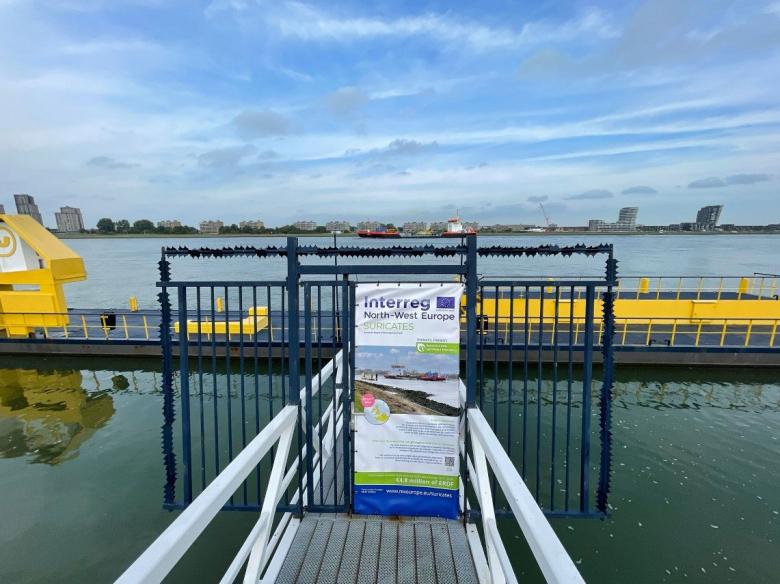
Suricates project banner set up near a site that has been reusing 200,000 tonnes of sediment from the navigation channel of the Port of Rotterdam (Rotterdam, 2022).
© Deltares
Expected results
In order to improve regional resilience to climate change, erosion and flooding, plans have been made to reuse sediments at three SURICATES pilot sites located in three geographical areas of the NWE zone:
- Port of Rotterdam (Netherlands),
- Scottish Canals (Scotland, UK),
- La Hisse (Saint-Samson-sur-Rance, Brittany, France).
Overall, 220,000 tonnes of sediments will be used as raw material in four innovative projects, for the building of resilient protection systems. Our aim is to develop projects reusing 1.3 Mt/year of fine sediments within the next five years in the NWE zone and 2.3 Mt/year within 10 years in the EU.
In terms of the tonnage targeted for reuse, SURICATES can be described as a large-scale demonstration project.
In addition to this objective, the project is expected to achieve the following results:
- Find solutions enabling authorities, erosion experts, and port and waterway managers to reuse and recover more sediments from their ports, etc.
- Implement tools and methods to locally quantify global impacts, using social, economic and environmental modelling.
- Test the solutions deployed at pilot sites in the Port of Rotterdam (Netherlands), Scottish Canals (Scotland, UK) and La Hisse (Saint-Samson-sur-Rance, Brittany, France).
- Put in place operational guidelines to encourage the emergence of other projects in the NWE zone to protect shorelines, regenerate/reinforce ports/shorelines and replenish beaches using dredged sediments.
- Conduct networking and dissemination activities with local and European authorities, in order to identify and develop three new projects that could be implemented after SURICATES.
Role of BRGM
As part of the SURICATES project, BRGM was asked to develop in situ measurement techniques for measurement campaigns at several sites earmarked for dredging or for the deposit of sediments in partner countries (FR, IE, UK, NL).
BRGM is Leader of the “Long Term Effects” work package, which includes the development of operational guidelines, and the dissemination of lessons learned from the project, along with communication and awareness-raising for stakeholders, with a view to encouraging the emergence of three new sediment reuse initiatives that could be implemented after the SURICATES project in partner countries.
BRGM was closely involved in the design, implementation and monitoring of a fertile soil pilot at a transit site for sediments dredged from the Rance estuary at La Hisse (Saint-Samson-sur-Rance, Brittany, France).
Partners
- University of Lille, France - Lead Partner
- Munster Technical University (MTU), Ireland
- Deltares, Netherlands
- University of Strathclyde, UK
- Port of Rotterdam, Netherlands
- University College Cork (UCC), Ireland
- IXSANE, France
- French Geological Survey (BRGM), France
- Scottish Canals, UK
- Association pour la Recherche et le Développement des Méthodes et Processus Industriels / Association for the Research and Development of Industrial Processes and Methods (ARMINES), France - IMT (L'École nationale supérieure des Mines-Télécom engineering school) northern Europe, France
- TEAM2 competitiveness cluster, France
- The joint syndicate Syndicat mixte de portage du SAGE Rance Frémur (EPTB Rance Frémur), France

